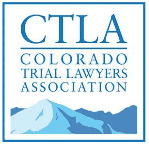Request a Free Consultation | No Upfront FeesSe Habla Español
970-225-2190 |
1-800-664-3151
Most Common Bad Faith Tactics By Colorado Insurance Companies
 When an insurance company fails or refuses to do what they reasonably should do or does something they reasonably should not do, that is acting in bad faith. One example would be outright denying a valid claim for a car accident without providing a reason; another might be offering a lowball settlement for a serious crash with a driver who fled the scene. If you think your insurance company is acting in bad faith, an attorney can discuss how you can fight back to claim the compensation you deserve.
When an insurance company fails or refuses to do what they reasonably should do or does something they reasonably should not do, that is acting in bad faith. One example would be outright denying a valid claim for a car accident without providing a reason; another might be offering a lowball settlement for a serious crash with a driver who fled the scene. If you think your insurance company is acting in bad faith, an attorney can discuss how you can fight back to claim the compensation you deserve.
Denial Without A Proper Investigation
An insurance company’s failure to properly collect evidence should not lead to a full or partial denial of a claim. In the case of a car accident claim, the insurance company should ask the claimant for evidence and send either adjusters or investigators to gather their own evidence of the accident. The reasoning is two-fold:
-
By performing an investigation, the insurance company is protecting itself from fraud
-
The insurance company must assess the claim properly so that it does not lead to a bad faith lawsuit
Unreasonable Delays
An insurance company should be willing to promptly process a claim, and there are limits to how long an insurance company has to process each claim. Sometimes investigations do take time. However, if a policyholder feels their claim is being unreasonably delayed, then they should consult a lawyer to ensure that is the case.
Accusations and Threats
When an insurance company accuses a claimant of wrongdoing or makes an attempt to intimidate a policyholder into not filing a claim, that can be seen as acting in bad faith. The insurance company is supposed to act on the policyholder's behalf by conducting a thorough investigation to uncover the required evidence to approve or deny a claim in good faith. If they fail to do so, it may be time to get an attorney involved.
First-Party Claim vs Third-Party Claim
The duty of an insurance company will depend on whether or not the claim is first- or third-party. A first-party claim is one against a person’s own insurance policy. Generally, a policyholder in a first-party claim already has a paid-for promise from their insurance company to provide reasonable protection and settle claims in good faith.
A third-party claim is one made against another person’s insurance policy. The insurance company is still supposed to act in good faith but the duty is no longer owed to the claimant. Instead, they owe a duty to the insured individual. Bad faith claims are more difficult to prove in a third-party claim and may require the help of an experienced attorney.
Contact a Larimer County, CO Bad Faith Insurance Attorney
Whenever you feel an insurance company is acting in bad faith toward a claim, contact a Fort Collins, CO bad faith litigation lawyer. The Hoggatt Law Office, P.C. is ready to hear your side of the story and fight to ensure your rights are protected. For a free consultation to discuss your claim, call 970-225-2190 right now to set up an appointment.

970-225-2190 | 1-800-664-3151
1403 W. 29th St.,
Loveland, Colorado 80538
Greeley:
3835 W. 10th Street, Unit 100,
Greeley, Colorado 80634|
970-460-2220
Longmont:
353 Main Street, Suite A,
Longmont, Colorado 80501|
720-575-0509
Boulder:
4450 Arapahoe Avenue, Suite 100,
Boulder, Colorado 80303|
303-997-2018
Ft. Collins:
123 North College Ave., Suite 160,
Fort Collins, CO 80524|
970-225-2190
Cheyenne:
109 E. 17th St., Suite #6148,
Cheyenne, WY 82001|
307-227-4051 (By Appointment Only)















